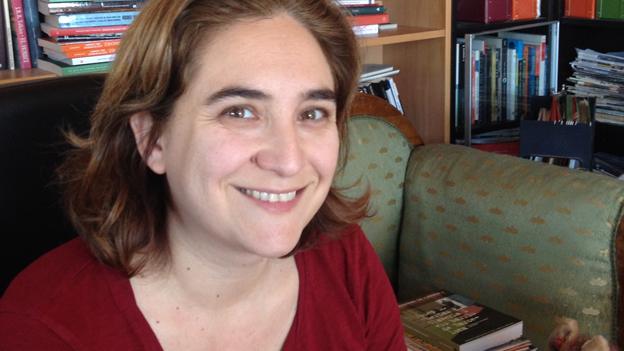Coronavirus: Free our children from lockdown, says Barcelona mayor
- Published
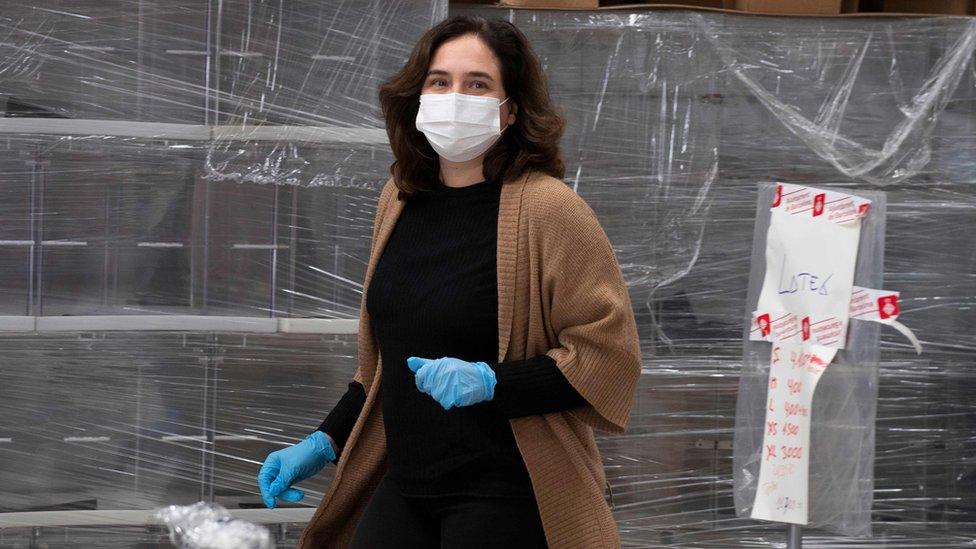
The mayor of Barcelona said that like other parents she worried about the "psychological and emotional health" of her children
Barcelona's mayor has called for an end to strict coronavirus lockdown measures in Spain which bar children from going out for any reason.
"These children need to get out," Ada Colau wrote on Facebook, herself the mother of youngsters aged three and nine.
"Wait no more: Free our children!"
Spain - which has the most confirmed cases in Europe - is the only Western European country where children cannot leave home at all.
Prime Minister Pedro Sánchez announced the nationwide lockdown on 14 March. It has since been extended until at least 26 April - though people in construction, manufacturing and some service jobs were allowed to return to work this week.
Rules for children differ widely from country to country, with schools and kindergartens already reopening in Denmark on Wednesday.
According to Johns Hopkins University data, worldwide cases of the virus have risen to more than two million.
While the spread of infections appears to be easing in much of Europe, the continent has recorded hundreds of thousands of infections - with Spain alone accounting for 19,130 deaths and almost 183,000 cases. A further 551 deaths were recorded in the past 24 hours, officials said on Thursday.
One of the main centres of the Spanish outbreak has been in the Catalonia region of which Barcelona is the capital.
Hans Kluge, World Health Organization's Europe director, said on Thursday while there were "optimistic signs" in Europe, the next few weeks would be "critical".
What did the mayor say?
The left-wing mayor - the first woman to hold the position in Barcelona - made her plea in a Facebook post on Wednesday.
"Week after week, they fight each other more ever day, they have fits of sadness, anger," she wrote, saying that like many other parents she worried about the "psychological and emotional health" of her children.
"If adults can go out to walk the dog... why must our children keep waiting?"
Ms Colau argues that children should be allowed out in their local area, as in other countries, "in accordance with health experts' advice".
"We are tired of being told that we are soldiers and this is a war, instead of talking about how to take care of our lives and each other."
Inside the ICU in one of Spain's biggest hospitals
The decision to keep children inside is becoming increasingly controversial in Spain.
Deputy Prime Minister Pablo Iglesias has come under fire after he said he was "very lucky" his three children have a garden, adding he was "aware that millions of families had children in their apartments of 40, 50 or 60m".
Conservative politician Mario Gracés Sanagustín tweeted it was "not lucky" he had a garden but in fact part of his "social shield".

A SIMPLE GUIDE: How do I protect myself?
AVOIDING CONTACT: The rules on self-isolation and exercise
HOPE AND LOSS: Your coronavirus stories
VIDEO: The 20-second hand wash

Save the Children's Spanish branch is calling for children to be allowed outside near their homes for an hour each day. Andrés Conde told AFP news agency that they were "one of the most vulnerable populations during this prolonged confinement".
The Spanish Obesity Society (SEEDO) estimates that children will gain on average about 5% of their body weight in lockdown due to lack of exercise and the risk of unhealthy eating.
What's the situation elsewhere in Europe?
Spain's decision to keep children indoors is stricter than anywhere else in Europe, but there is a wide debate about children in lockdown.
Other countries have set age limits for going outside. Under-18s can only go outside in Poland and Bosnia if accompanied by an adult, while Italy - the country with Europe's highest recorded number of deaths at 21,645 - allows all children out if they are with a parent.
France requires everyone to carry a signed form explaining why they are outside. Parents must sign the form for their children.
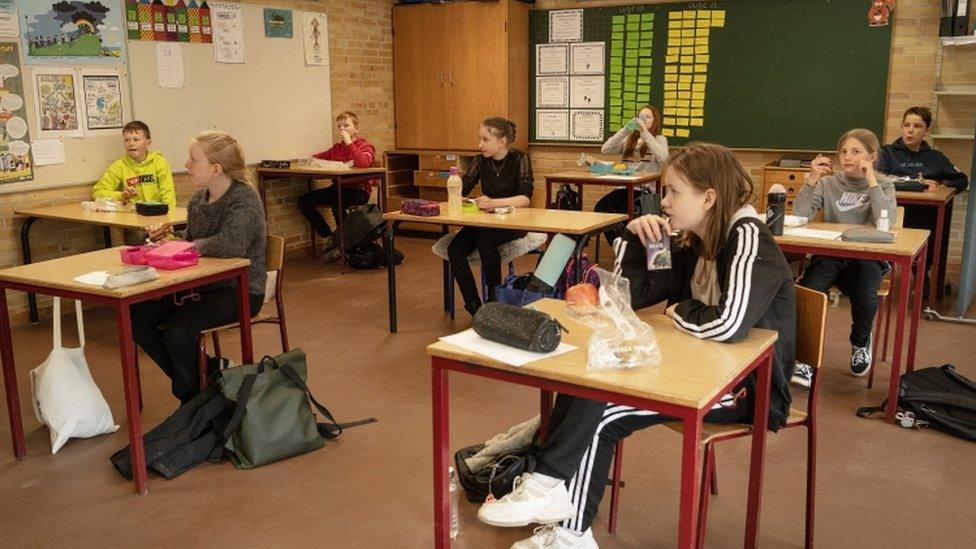
Denmark reopened primary schools and kindergartens on Wednesday
Elsewhere, however, children are already returning to education.
Denmark reopened primary schools and kindergartens on Wednesday. Norway plans to follow suit shortly, with kindergartens set to open their doors on 20 April and primary schools a week later.
Both Iceland and Sweden never closed their primary schools, with Iceland set to reopen high schools and universities on 4 May.
German Chancellor Angela Merkel announced on Wednesday that pupils would slowly start to return to class on 4 May, with priority given to those with school exams.
However, she said there would need to be new rules for break times and school buses, saying it would require "a great logistical effort" to ensure students' safety.
Students from Denmark, Spain, Japan and England on how they’re adapting to a new way of life
- Published15 April 2020
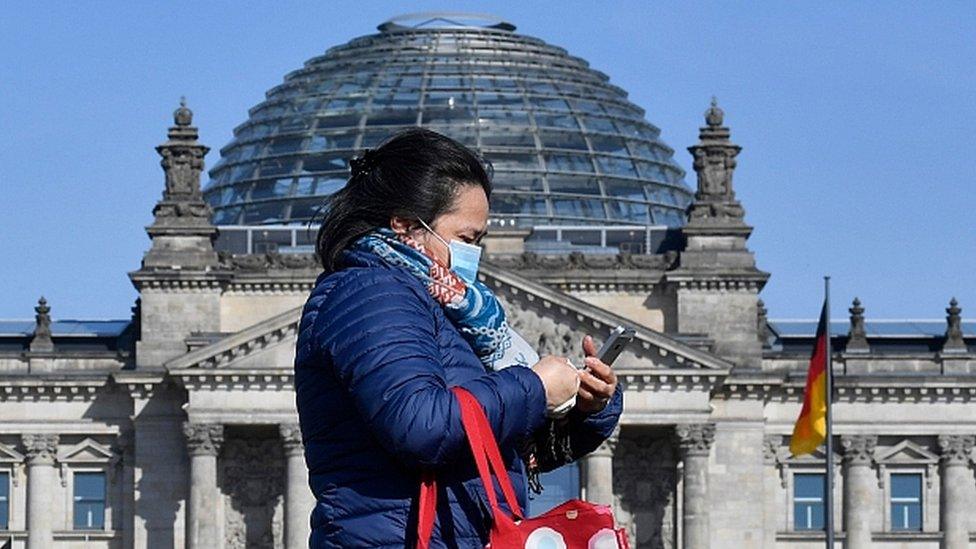
- Published16 April 2020

- Published12 December 2015
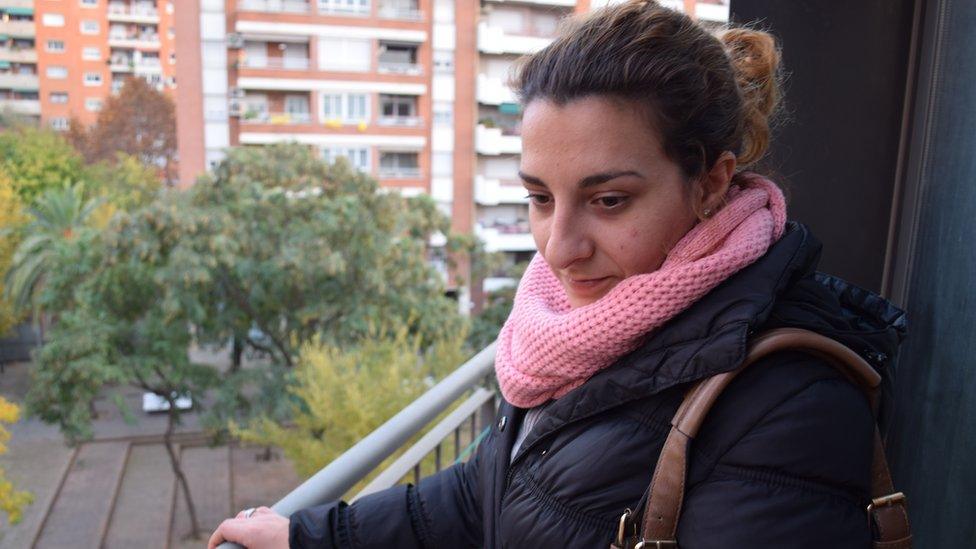
- Published19 February 2014
